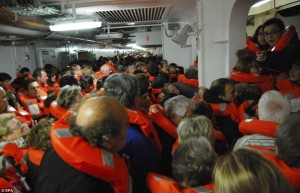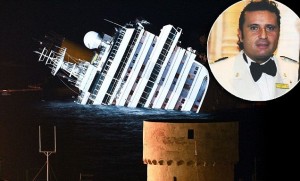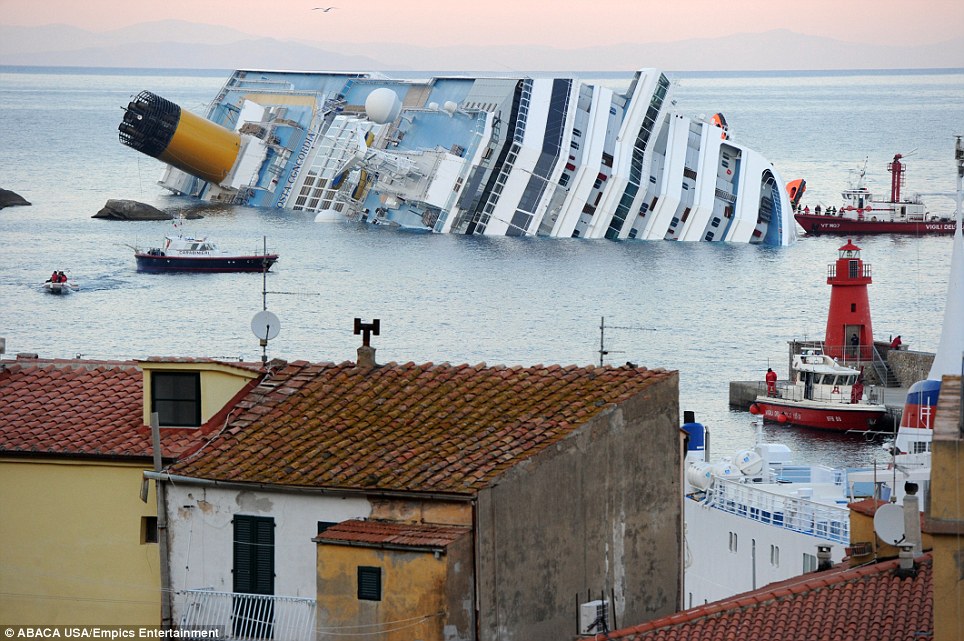 No doubt it was a harrowing experience for all passengers on Friday night when the luxury cruise ship Costa Concordia ran aground and capsized off Italy’s Tuscan coast. And I’m sure the tales of survival will soon be the stuff of legend.
No doubt it was a harrowing experience for all passengers on Friday night when the luxury cruise ship Costa Concordia ran aground and capsized off Italy’s Tuscan coast. And I’m sure the tales of survival will soon be the stuff of legend.
But it’s a manifestation of the myopia and conceit that permeates our twitterverse that the media immediately began hyping the notion that this shipwreck “is like the Titanic.” Because all one has to know is that when the Titanic sank in 1912 over 1,500 people died and only 705 survived; whereas, when the Concordia sank on Friday fewer than 50 died but, more to the point, over 4,000 people survived.
Yet, just in case the Titanic analogy does not evoke the kind of hysteria that would sustain ratings or hold readers, the media are now hyping reports that the Concordia’s 2,400 tons of diesel fuel could leak into the Mediterranean and cause an ecological catastrophe … like the one the Exxon Valdez caused in 1989. Hope springs eternal….
To be sure, any loss of life in these circumstances is tragic. But this analogy to the Titanic is almost as uninformed and insensitive as making an analogy between the earthquake that killed over 400,000 in Haiti in January 2010 and the one that killed fewer than 200 in New Zealand in February 2011.
While the investigation is ongoing, preliminary indications are that there may have been significant human error on the part of the ship’s master, Captain Francesco Schettino, which resulted in these grave consequences.
(Statement by Costa Cruise Lines, BBC, January 15, 2012)
 Indeed, reports are that the captain of the Concordia ran it aground despite having computerized navigation systems so sophisticated the ship could have steered clear of the rocks that doomed it on autopilot. Ironically, he manned the controls in a well-intentioned attempt to give the passengers (especially the young woman he invited up to the Bridge) a more scenic view of the shoreline as they left port.
Indeed, reports are that the captain of the Concordia ran it aground despite having computerized navigation systems so sophisticated the ship could have steered clear of the rocks that doomed it on autopilot. Ironically, he manned the controls in a well-intentioned attempt to give the passengers (especially the young woman he invited up to the Bridge) a more scenic view of the shoreline as they left port.
Unfortunately, whatever sympathy he might have garnered for this mistake was completely vitiated by reports that he was among the first to abandon ship, leaving thousands of women and children struggling to save their own lives. The captain was summarily arrested and charged with a number of manslaughter charges and for abandoning ship; and rightly so!
Meanwhile, given the (lack of) leadership he displayed, it was hardly surprising that the crew he left behind were reportedly every bit as clueless and panic-stricken as the passengers. Actually, passenger accounts suggest that the crew gave new, shameful meaning to the survival-of-the-fittest clarion call, every man for himself! This is why, all things considered, it’s a miracle 4,000 survived.
In any event, my prayers and thoughts go out to all those affected. I just hope they derive some consolation from the tens of millions Carnival, the Concordia’s parent company, will pay to settle their claims. Which makes me wonder how much the White Star Line, the Titanic’s parent company, paid out to survivors and families of the dead after it sank…?
